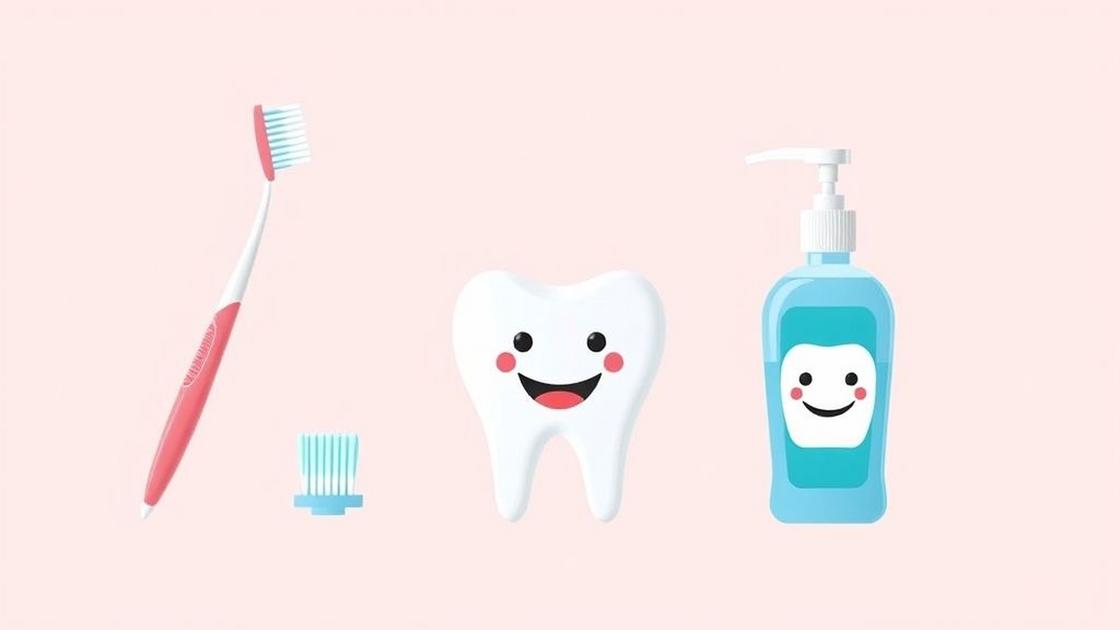Tooth sensitivity can be a painful and uncomfortable issue for many, especially for women over 30 who often juggle various responsibilities. Learning how to stop tooth sensitivity with natural remedies may open the door to relief and a brighter smile. In this article, we’ll explore effective natural treatments that can soothe your dental discomfort and help you regain confidence.
Understanding Tooth Sensitivity: Causes and Symptoms
Tooth sensitivity is a common issue that many people face, especially women over 30 who may be experiencing hormonal changes, stress, or lifestyle shifts that can contribute to this discomfort. Tooth sensitivity occurs when the underlying layer of a tooth, known as dentin, becomes exposed. This exposure can lead to pain or discomfort when eating hot, cold, or sweet foods.
Some common causes of tooth sensitivity include:
- Gum Recession: This can happen due to brushing too hard or periodontal disease, exposing the sensitive parts of the tooth.
- Tooth Enamel Erosion: Acids from certain foods and beverages can wear down enamel, leaving dentin vulnerable.
- Cracked Teeth: A crack in a tooth can expose nerve endings and lead to sensitivity.
- Dental Procedures: Recent fillings or cleanings may temporarily increase sensitivity.
Symptoms typically include sharp pain or discomfort when consuming hot, cold, or sweet substances. Recognizing these symptoms is the first step in addressing tooth sensitivity effectively.
Natural Remedies for Immediate Relief
Fortunately, there are several natural remedies that can provide immediate relief from tooth sensitivity. These remedies can be effective and gentle, helping to soothe discomfort without harsh chemicals.
- Saltwater Rinse: Mixing a teaspoon of salt in warm water and using it as a mouthwash can help reduce inflammation and relieve pain.
- Baking Soda Paste: Making a paste with baking soda and water can neutralize acids and soothe sensitive teeth when applied gently.
- Warm Compress: Applying a warm compress to the outside of your cheek can help alleviate pain from sensitivity.
- Clove Oil: Known for its analgesic properties, applying clove oil directly to the affected tooth may provide relief.
Dietary Changes That Help Reduce Sensitivity
Your diet plays a significant role in managing tooth sensitivity. Making simple changes can help strengthen your teeth and improve your overall oral health.
- Avoid Acidic Foods: Citrus fruits, soda, and wine can erode tooth enamel. Limiting these in your diet can help protect your teeth.
- Incorporate Calcium-Rich Foods: Foods like yogurt, cheese, and leafy greens can strengthen your teeth and bones.
- Stay Hydrated: Drinking plenty of water can help wash away acids and keep your mouth hydrated.
- Eat Sugar-Free Gum: Chewing sugar-free gum after meals can stimulate saliva production, which helps neutralize acids.
The Role of Oral Hygiene in Tooth Sensitivity
Maintaining good oral hygiene is vital in preventing and managing tooth sensitivity. Proper brushing and flossing can help ward off decay and gum disease, both of which can trigger sensitivity.
- Use a Soft-Bristled Toothbrush: A soft-bristled toothbrush is gentler on the gums and enamel.
- Brush Gently: Avoid aggressive brushing. Use gentle circular motions instead to clean your teeth thoroughly.
- Floss Daily: Regular flossing removes plaque and food particles that can cause gum recession.
- Mouthwash: Consider using an alcohol-free mouthwash that can help reinforce enamel and reduce sensitivity.
Essential Oils for Soothing Sensitive Teeth
Essential oils can be powerful allies in soothing sensitive teeth and promoting oral health. Here are some oils to consider:
- Peppermint Oil: This oil has cooling properties and can provide temporary relief from sensitivity.
- Tea Tree Oil: Known for its antibacterial properties, tea tree oil can help fight infections that may lead to sensitivity.
- Lavender Oil: The soothing nature of lavender can help relax the nerves in the mouth.
Mixing a few drops of essential oil with a carrier oil, like coconut oil, can create a soothing topical application for sensitive areas.
Herbal Teas That Can Alleviate Tooth Pain
Herbal teas can offer soothing properties that may help alleviate tooth pain and sensitivity. Here are some great options:
- Chamomile Tea: This tea is known for its calming effects and can provide relief from inflammation.
- Ginger Tea: Ginger has anti-inflammatory properties that may help reduce discomfort.
- Green Tea: Rich in antioxidants, green tea can support dental health and reduce sensitivity.
Sipping these warm beverages, particularly chamomile or ginger tea, can be a comforting ritual when dealing with tooth sensitivity.
The Benefits of Using Coconut Oil for Oral Care
Coconut oil is often touted for its oral health benefits. This natural oil has antibacterial properties and can be used in various ways to combat tooth sensitivity:
- Oil Pulling: Swishing coconut oil in your mouth for 10-20 minutes may help reduce plaque buildup and improve gum health.
- DIY Toothpaste: Mixing coconut oil with baking soda and essential oils can create a natural toothpaste that supports sensitive teeth.
- Moisturizer: Applying coconut oil along your gums can help soothe and hydrate areas that may be irritated.
Lifestyle Changes to Minimize Tooth Sensitivity
Changing some habits can significantly reduce tooth sensitivity. Here are a few proactive steps:
- Quit Smoking: If you smoke, quitting can improve your oral health and reduce sensitivity related to gum issues.
- Manage Stress: Stress can exacerbate dental issues. Consider yoga or meditation to promote relaxation.
- Visit Your Dentist Regularly: Regular check-ups can help catch any potential issues early on.
When to Seek Professional Help for Sensitive Teeth
While natural remedies are effective, some cases of tooth sensitivity may require professional intervention. Here are signs you should consult a dentist:
- Persistent Pain: If the sensitivity lasts for more than a few days.
- Severe Discomfort: Any pain that’s unbearable should not be ignored.
- Swelling or Infections: Signs of infection should prompt a dental visit immediately.
Empowering Yourself with Knowledge and Natural Solutions
Tooth sensitivity can be frustrating, but by empowering yourself with knowledge and using natural solutions, you can take control. Remember, it’s possible to improve your symptoms and enjoy eating and drinking your favorite things again. Just like other women who have faced similar challenges, you can find relief. Follow a simple step-by-step method, and don’t hesitate to reach out and discover effective solutions that can lead to a happier, healthier smile.






